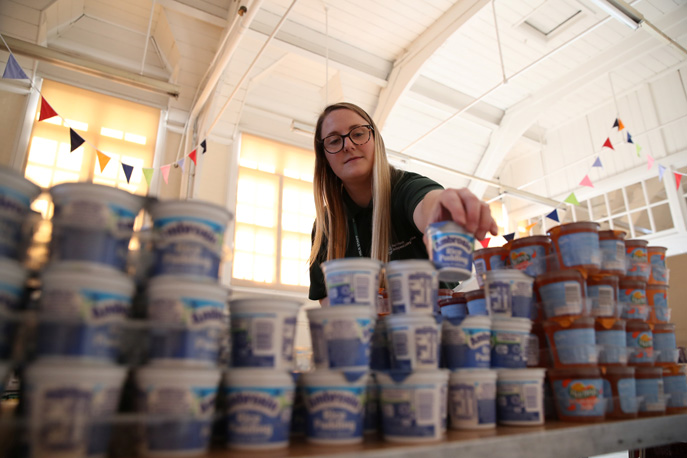Steve Butterworth of Neighbourly says the new Neighbourly Community Fund allows companies like M&S, Lidl, Aldi, Danone and Coca-Cola European Partners to mount a coordinated response to helping the most vulnerable during the ongoing crisis
The coronavirus crisis, and its devastating consequences, has touched and affected every one of us. The pandemic has already changed millions of lives, and its impacts are placing increased pressure on some of the most vulnerable people in our communities.
Some of the most at risk people in our society, including the elderly, those on low incomes and people at risk of food insecurity, are facing appalling hardship and stress. So it’s no surprise that we’ve already seen a vast array of initiatives from businesses who are all, understandably, wanting to play their part in building a positive response. Companies from across the board want to do something – anything – to help respond to the threat and address the pressures on communities around the UK.
But while it is heartening to see so many businesses wanting to take positive action, we must ensure that this desire is harnessed and channelled effectively. If it isn’t directed and managed successfully, good efforts could be wasted.
More than 2,145 community causes have registered to receive emergency micro-grants, highlighting the urgent need for support at a grassroots level
That’s one of the factors behind the creation of the new Neighbourly Community Fund – which is providing businesses with a direct, controlled and impactful route to support community organisations. The fund, which we launched alongside our corporate partners on 20 March, is channelling money directly to community causes across the UK to ensure they can deliver essential services to those most at risk.
M&S, Lidl, Aldi, Danone and Coca-Cola European Partners have already committed almost £500,000 to the fund so that urgent relief can get to where it’s most needed. Together we are providing unrestricted micro-grants of up to £400 directly to a range of community causes across the UK, to ensure they can continue to deliver their essential work to those most at risk. The community causes that have already started receiving the funds include foodbanks, homeless shelters, care homes, youth groups and health charities. More than 2,145 community causes have now registered to receive emergency micro-grants through our fund, which highlights the urgent need for emergency support at a grassroots level.
We know the strain on individuals and communities is continuing to build – and with businesses across the UK looking at how best they can respond to the ongoing crisis, we need to ensure that initiatives are driven by two core principles: be thoughtful and be useful.
Be thoughtful
• The communities themselves are the experts in what they need; they are on the frontline dealing with the impact, so involve them fully in developing any response you want to put together to help.
• What is needed by community groups and charities today will be very different over the weeks and months to come, so it is crucial to work closely with those providing frontline services to ensure the right support gets to the right places.
• Never has there been a greater need to respect and respond to the knowledge of local charities and community groups about who needs help in their neighbourhood. The needs of every community are different, and it is critical that assistance is delivered at a hyper-local level.
Be useful
• If you have a good idea, check who is already doing something similar or related and join forces with them. Is there an existing infrastructure in place that you could maximise to help speed up the effectiveness of your support? You need to avoid unintentionally compromising existing and established support initiatives.
• If you are the first to have an idea or approach, think about who you can work with to maximise the potential reach and impact of your idea. Businesses must set aside notions of rivalry and prioritise usefulness and impact – it is a time for collaboration and coordination, not competition.
The scale of this crisis will continue to cause significant difficulties and distress for communities throughout the UK. We must harness the power of responsible businesses to channel support most effectively and sustainably to the people who need it most.
By working together, we can help to save lives and make a massive difference to the most vulnerable people in our society
Government data shows that 3 million children are at risk of going hungry while they are out of school, and recent figures show that nearly a million people applied for universal credit in the past fortnight, a surge in welfare support that highlights the depth of the income crisis. Each of our community partners expects to support an average of 180 people each week with emergency provisions such as food and basic essentials, following the additional pressures created by coronavirus.
To ensure a coordinated response, we are calling on businesses to join forces and support collaborative initiatives like our community fund. By working together, we can help to save lives and make a massive difference to the most vulnerable people in our society.

Steve Butterworth is a business leader and CEO at Neighbourly. He is involved with a number of influential industry groups including sub committees of WRAP and DEFRA and a trustee of a community-led conservation project in Africa.


